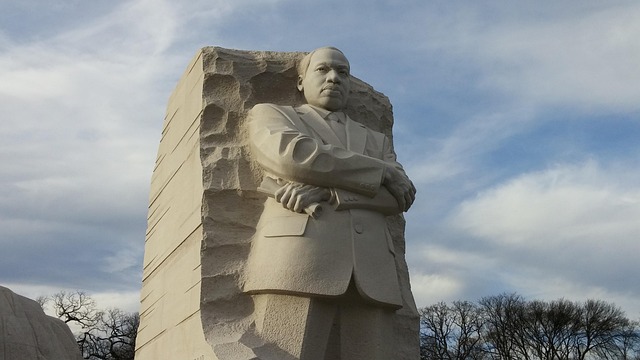Washington D.C. residents enjoy robust telemarketing protections, including the powerful "do-not-call" registry and specific regulations enforced by DC CRA. By registering on the No Call Registry, individuals gain control over their communication preferences. If violated, consumers can file complaints with regulatory bodies like the FTC and state attorney general's office, consult a No Call Attorney DC for legal guidance, and even sue for damages if necessary. Protecting personal information is key; never disclose sensitive details unless you initiated the call. Swift action and documentation are crucial to stopping unwanted calls.
In Washington D.C., protecting your privacy from aggressive telemarketers is a crucial aspect of modern life. Understanding and navigating telemarketing laws is essential for residents looking to avoid unwanted calls. This article guides you through the intricacies of these regulations, highlighting the power of the No Call Registry in safeguarding your peace. We explore consumer rights, common scams, and provide actionable steps, including how to engage a No Call Attorney DC, to combat violators and reclaim control over your communications.
Understanding Telemarketing Regulations in Washington D.C.

In Washington D.C., telemarketing regulations are strictly enforced to protect residents from unwanted calls and ensure fair business practices. The District’s laws, administered by the Consumer and Regulatory Affairs (DC CRA) division, offer significant safeguards for individuals dealing with telemarketers. These rules govern various aspects of telemarketing activities, including call timing, content, and consent. One crucial aspect is the do-not-call list, which allows residents to opt-out of receiving sales or promotional calls. If your rights have been violated by a telemarketer, consulting a No Call Attorney DC can be beneficial.
Understanding these regulations is essential for both consumers and businesses. Consumers should familiarize themselves with their rights, such as the ability to request removal from call lists and sue for damages if their privacy is invaded. Businesses, on the other hand, need to adhere to strict guidelines regarding call frequency, disclosure of intent, and respect for consumer choices. Compliance ensures legitimate marketing efforts while fostering trust between businesses and consumers in Washington D.C.
The Role of the No Call Registry in Protecting Residents

In Washington D.C., the No Call Registry plays a pivotal role in safeguarding residents from unwanted telemarketing calls. This state-mandated registry allows individuals to opt-out of receiving marketing phone calls, effectively blocking calls from businesses that have not secured explicit consent. By registering, residents can enjoy a significant reduction in unsolicited sales pitches, ensuring their privacy and peace of mind.
The No Call Registry empowers residents with the ability to control their communication preferences. If you’re concerned about your privacy or frustrated by excessive telemarketing, consulting a No Call Attorney DC could be beneficial. These legal experts specialize in navigating telemarketing laws and can offer guidance on how to protect yourself from unwanted calls while understanding your rights under the law.
Legal Rights and Protections for Consumers

In Washington D.C., consumers have strong legal rights and protections against unsolicited telemarketing calls, thanks to the Telephone Consumer Protection Act (TCPA). One of the key provisions is the “do-not-call” registry, which allows individuals to register their phone numbers to prevent receiving most types of telemarketing calls. If a consumer’s number is on this list, businesses are prohibited from calling them, with penalties for violations.
If you’re facing persistent or unwanted telemarketing calls, particularly from No Call Attorney DC, you have options. You can file a complaint with the Federal Trade Commission (FTC) and your state attorney general’s office. Additionally, seeking legal advice from an expert in telemarketing law could be beneficial to understand your rights and take appropriate action, such as suing for damages if necessary.
Common Telemarketing Scams to Watch Out For

Telemarketing scams are a common issue, and consumers in Washington D.C. need to be aware of potential tricks to protect their privacy and personal information. One of the most prevalent schemes involves unwanted calls from telephone marketers offering various products or services. These callers often use high-pressure sales tactics and may falsely claim that you’ve won a prize or that there’s an issue with your account, requiring immediate action. They might also pose as government officials or No Call Attorney DC representatives to gain trust and access sensitive data.
To avoid such scams, it’s crucial to never share personal or financial details over the phone unless you initiated the call and are certain of the caller’s identity. Be wary of unexpected calls, and remember that legitimate companies will not pressure you into making immediate purchases. If you suspect a scam, report it to local authorities and consider consulting with a No Call Attorney DC to understand your rights and legal options for recourse.
Taking Action: How to File a Complaint Against Violators

If you’ve received unwanted telemarketing calls, don’t hesitate to take action and protect your privacy. The first step is to identify the violator. Write down or record the caller’s information, including their phone number, name if available, and the date and time of the call. This evidence will be crucial when filing a complaint.
Filing a complaint with the Federal Trade Commission (FTC) or your state attorney general’s office is an effective way to stop persistent telemarketers. In Washington D.C., you can also consult a No Call Attorney DC for legal assistance and guidance on how to proceed against violators. These authorities have the power to investigate, issue cease-and-desist letters, and even take legal action against companies that violate privacy laws, ensuring your rights are protected.






